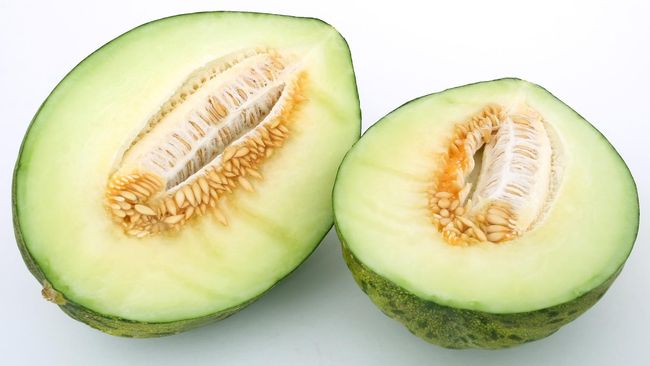
List of contents
Nutrition in melons
Foods that should not be consumed together with melons
1. Eggs
2. Milk
3. Cucumber
4. Banana
5. Orange
6. Fried food
7. Seblak
8. Soft drink
Jakarta, cartitleloans Indonesia
–
Thanks to its sweet and fresh taste, plus abundant nutrition,
melon
Of course it can be an option for healthy and delicious ones.
When the weather is hot,
fruit
This is very suitable to be eaten to help maintain body hydration.
Advertisement
Scroll to Continue with Content
The freshness of melons comes from its high water content and has important nutrients that are beneficial for the health of the body.
Melon also contains antioxidants such as vitamin C which plays a role in maintaining skin health and improving the immune system.
It’s just that, even though melons have many benefits, there are some foods that should not be consumed together with melons.What are those?
Nutrition in melons
Melons have low calories, but are rich in important nutrients, such as vitamin C and potassium.The following details of nutrition in one cup of melon that is cut into cubes, as quoted from
Health
:
– 54 calories
– 0.3 grams (g) fat
– 25 milligrams (mg) sodium
– 13 g of carbohydrates
– 1.4 g of fiber
– 1.3 g of protein
The vitamin C contained in it reaches 58.7 mg or around 65 percent of daily needs.The potassium content is 427 mg.
In addition, quoting
Medical News Today
, melons also contain other antioxidants such as selenium, beta carotene, lutein, zeaxanthin, and choline which helps protect the body from free radicals.
Foods that should not be consumed together with melons
There are some foods that should not be eaten together with melons.This is important to know so as not to cause indigestion or other discomfort in the body.
Quote
Times of India
, here are foods that should be avoided when you want to enjoy melons.
1. Eggs
Eating melons together with eggs high in protein can cause discomfort in digestion, such as flatulence.
This happens because of differences in digestive time and the needs of the enzymes that differ between the two foods.
2. Milk
Milk and melons are also not suitable for consumption together.Differences in acidity and digestive time between milk and melons can cause digestive disorders.
You can experience nausea or bloating if you consume both together.Give a considerable distance if you want to consume milk after eating melons.
3. Cucumber
Cucumbers and melons come from the same family, namely
Cucurbitaceae
.Combining the two can actually trigger gas and bloating.
This can occur because of the presence of enzymes and similar compounds contained in melons and cucumbers.
4. Banana
Bananas and melons have different digestive times.If consumed together, it can cause discomfort in the digestive system, such as the stomach feels full or bloating.
5. Orange
Combining melons with oranges or other acid fruit, for example in fruit salads or juices, also not recommended.
This combination can cause indigestion and stomach acid reflux in some people, especially those that have sensitive stomach.
6. Fried food
Oily fried foods, if consumed with melons, can slow down the digestive process and cause flatulence.
Therefore, avoid eating fried food along with melons to maintain the comfort of the stomach.
7. Seblak
Spicy foods such as seblak can irritate the stomach layer.If consumed with melons, this irritation can get worse, especially for people who have sensitive digestion.
8. Soft drink
Soft drinks are known to cause flatulence.If combined with melons, this bloating effect can be more severe and make the stomach uncomfortable.
Melon is indeed a refreshing and healthy fruit.However, it is important to pay attention to the combination of food consumed with him so that your digestion is not disturbed.
(rea/asr)
Read More: Sukabumi Earthquake Facts on weekends, not because of the Citarik Fault
Read More: Bekasi Police Resort Elang Elang Curanmor, Stolen for sale to Lampung